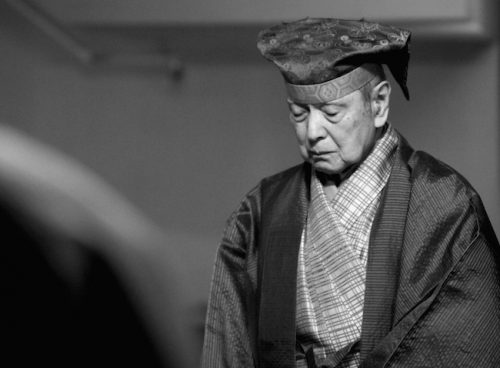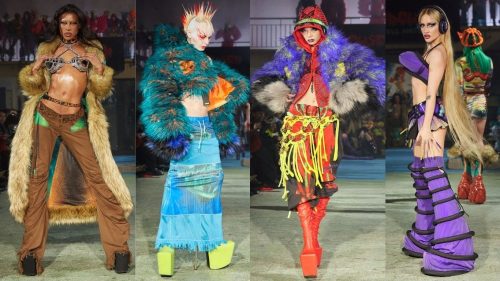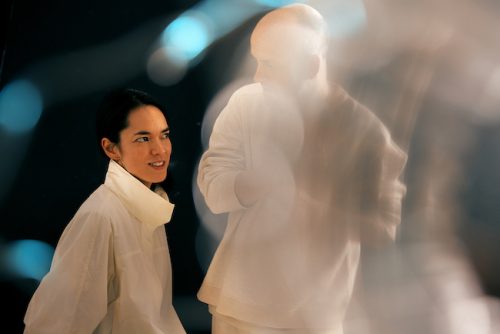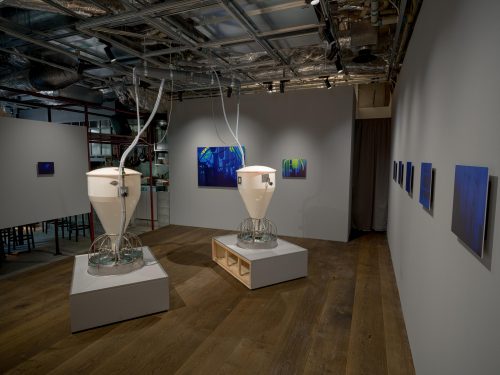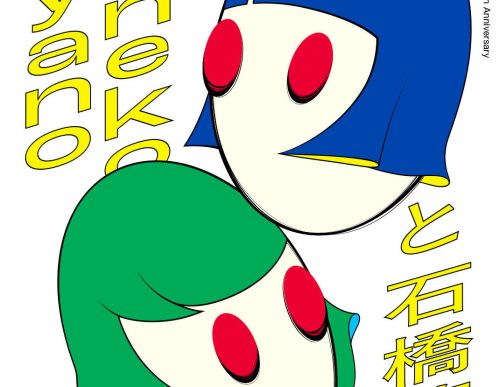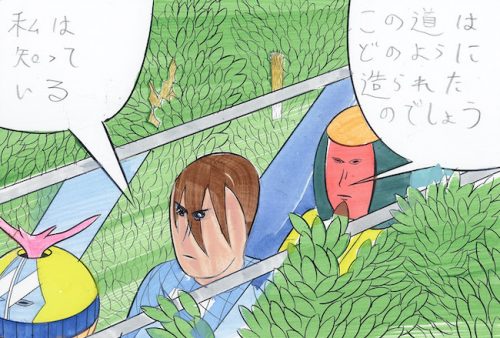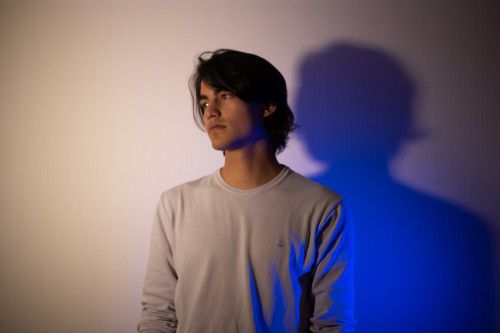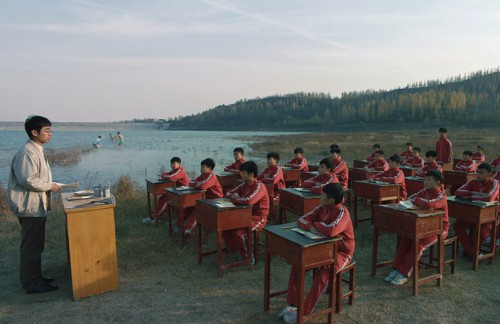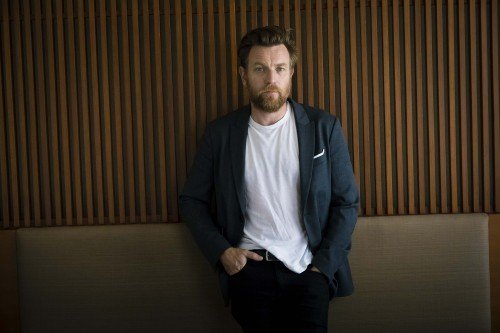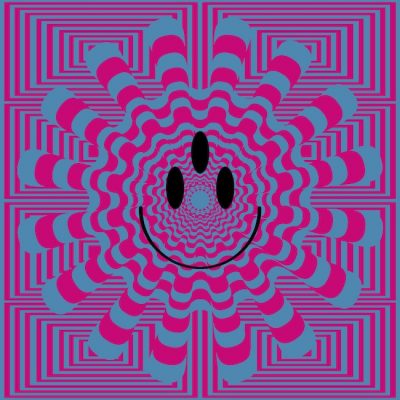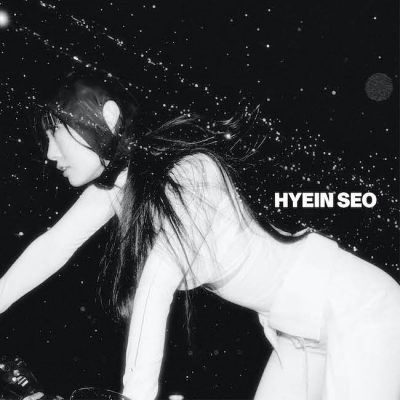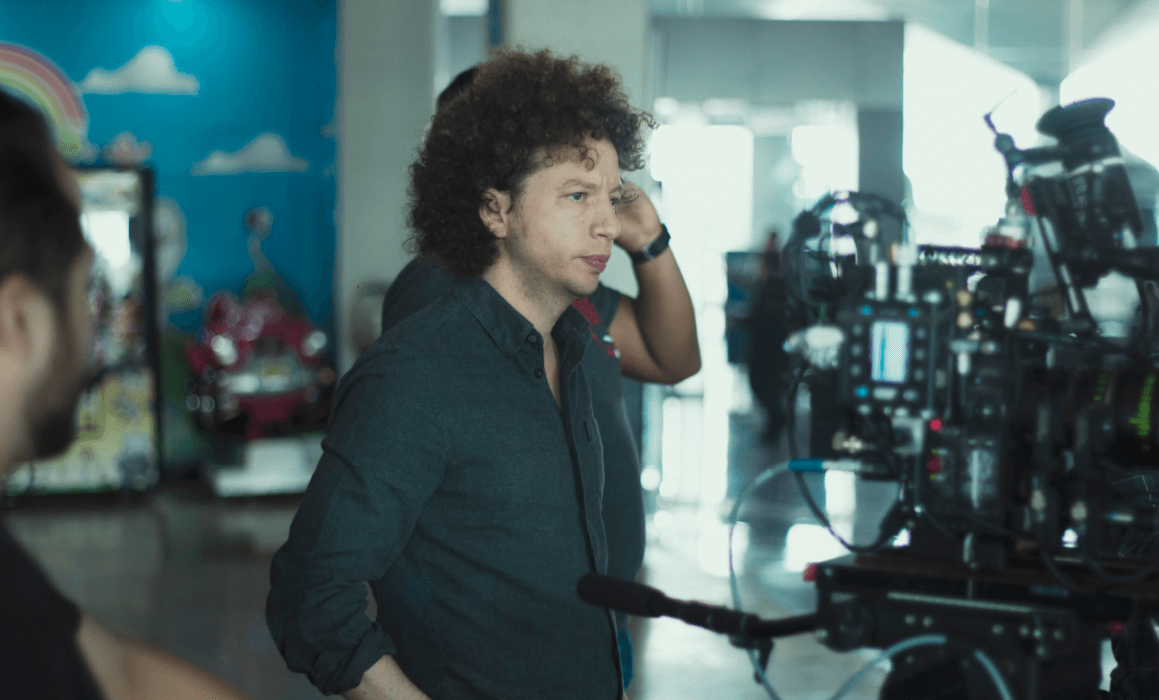
過去作『或る終焉』『父の秘密』で、生活に潜むタブーによって露になる真の人間の姿を追求したメキシコの新鋭ミシェル・フランコの新作『母という名の女』が6月16日より公開される。本作では母娘の確執を描き、第70回カンヌ国際映画祭ある視点部門審査員賞を受賞した彼がどのような眼差しで作品製作に取り組んでいるか訊いた。
——見ている側の立場によって印象が大きく異なる本作ですが、監督自身が試みた新たな心理描写は?
ミシェル「母と娘との物語や関係性という題材からスタートしたのですが、複数の登場人物の感情の絡まりから成る、複雑な心理描写をしようという流れとなりました。少なくとも主要な登場人物は4人ですが、更にその他の人物の視点も介在することによって深みが増しています。これまでの私の作品は、二人の登場人物がメインとなっていましたが、本作では更に視点を増やしたことによって様々な要素が相反し合う作品となった。それが進化した点だと言えます」
–First of all, I really enjoyed the film. It was really interesting. I’m not a mother and I don’t have children myself, but our another stuff is a mother. From those two points of view, we saw the film very differently. It was really thrilling to watch, because as you mentioned in the official interview, you tried to express four different people’s perspectives throughout the film. So it does give the audience vibrant emotional ride it seems. On your part, did you want to make something new by using four multiple perspectives?
“Absolutely. The subject matter was of course the relationship between mother and daughter at the start point. But then, yes, definitely I wanted to complicate things to have a least four points of view. Like the father of the boy, you know, smaller appearance but I wanted to have a complex because complicated things are happening. Also, most of my films features two main characters so this time I wanted to make a revolution. ”
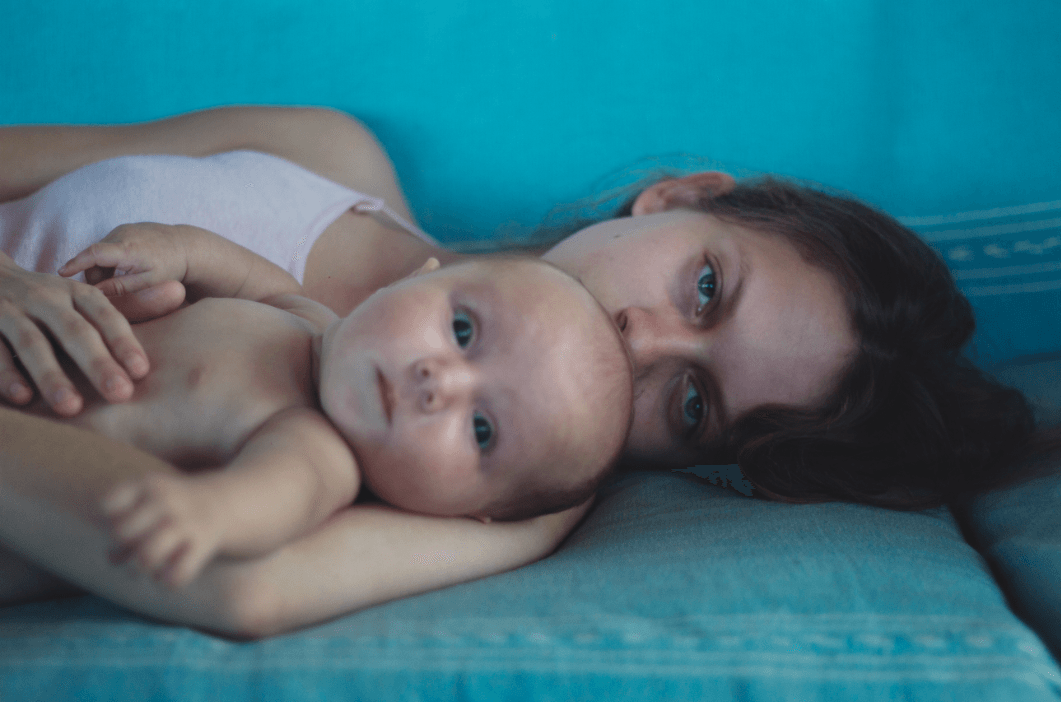
——前作『或る終焉』で看護師である主人公を天使のような存在として描いていないように、本作での母親や母性というものは、一般的に”あるべき立場””やそうであってほしい姿”ではないというところが1つのポイントだと感じました。
ミシェル「確かに、いわゆる映画の中で使われる典型的パターンからはなるべく離れたところで映画を作りたいという気持ちが私の中にはあります。キャラクター設定やストーリー、テーマの扱い方において、沢山の映画監督が一度成功したやり方を繰り返し使いがちなのですが、私にはそれは怠惰な方法に映ります。もちろん観客と繋がりたい気持ちや彼らに響く作品にしたい思いはあるのですが、私は誠実なアプローチで人々と作品を分かち合いたい。映画製作の慣習ではなく、1つの人生を見てもらうような分かち合い方ですね。なので、映画的なステレオタイプと言われる固定観念をなるべく切り捨てたいと努めています」
–“Chronic” also was really interesting, you always have character who’s not an angel. In this film, you have a mother whose quality is which we don’t usually associate with being a mother. So it feels like you seem to like to take a certain fixed idea of things and turn it on its head. Would you say it’s true? If so, why do you think you do that?
“I like getting as far as I can from film conventions. To become away film’s approach to characters, stories, subject matters. I think more directors take the same approach, you know, to get to connect with people through what they already know. I thinks films keep repeating that idea over and over again to make the audience connect to the movie. I think it’s lazy. I do want to connect to the audience, that’s very important. But I want to connect in an honest way. In a way much close to life than to cinema. Then I want to make it cinematic of course. But I don’t like using those conventions and stereotypes for characters.”
——撮影・編集のイヴ・カープとは前作に引き続きのタッグですが、本作でも観ている側がまるで登場人物たちと一緒にいるかのような没入感のある映像となっています。彼とは製作中にどのようなディスカッションを行いましたか?
ミシェル「彼の他の作品を観て素晴らしいと思い声をかけたのですが、同時にこれまで彼が過去作でやった方法は全て捨てて本作に一番適したやり方をいちから作り上げよう、というところから話し合いを始めました。いかにシンプルな画作りをするかを探求し、綺麗なだけの写真のようなフェイクな画作りは絶対にしたくないという点を大切にしました。私とイブは、キャラクターの奥深い心理まで掘り下げながら、映像としても興味深いものを作り上げたいと考えています。イヴはほとんどフィルターや照明は使用せず、撮影も実に早い。そして彼は作品の本質はどこなのかを考え、監督が何故映画を作るのかといったルーツまで掘り下げて画を作ります」
–Can you talk a little bit about collaboration with Yves Carp who who worked again on the film? He has a way of creating very immersive visual style. Can you talk about what discussion you guys had for this film and how you worked on it?
“I started working with Yves because I wanted to bring something new to my movies. He started getting involved in my forth movie. I liked his work, and at the same time, he liked my work, so he said he wanted to come into my world. The the collaboration started. But we let everything what we have been doing each other aside and we just came into finding the new best way to shoot and take movies. That was the most simple approach. We didn’t want to look for fake or easy aesthetic, you know, like nice photography. We want to make it interesting of course, but without many filters. Yves works very fast with natural lights and he’s always more into discussing what film is about than just lights. He really goes into the roots of what I’m trying to do and not stays in a superficial level. So we discuss a lot, and then, everything we agreed on, we have to test on set. Sometimes it works and the other times it doesn’t work because of what the actors are doing. So we also adapt what actors doing on the very same day. And then we reshoot a lot. 30% of my last a few movies and this movie, I reshot because there was whatever I don’t like or I think I could do better. Like, I shoot it again with different angles. It’s not like I wrap the film and go back. I edit at the same time I shoot so I go back and forth. Sometimes I reshoot three times.”
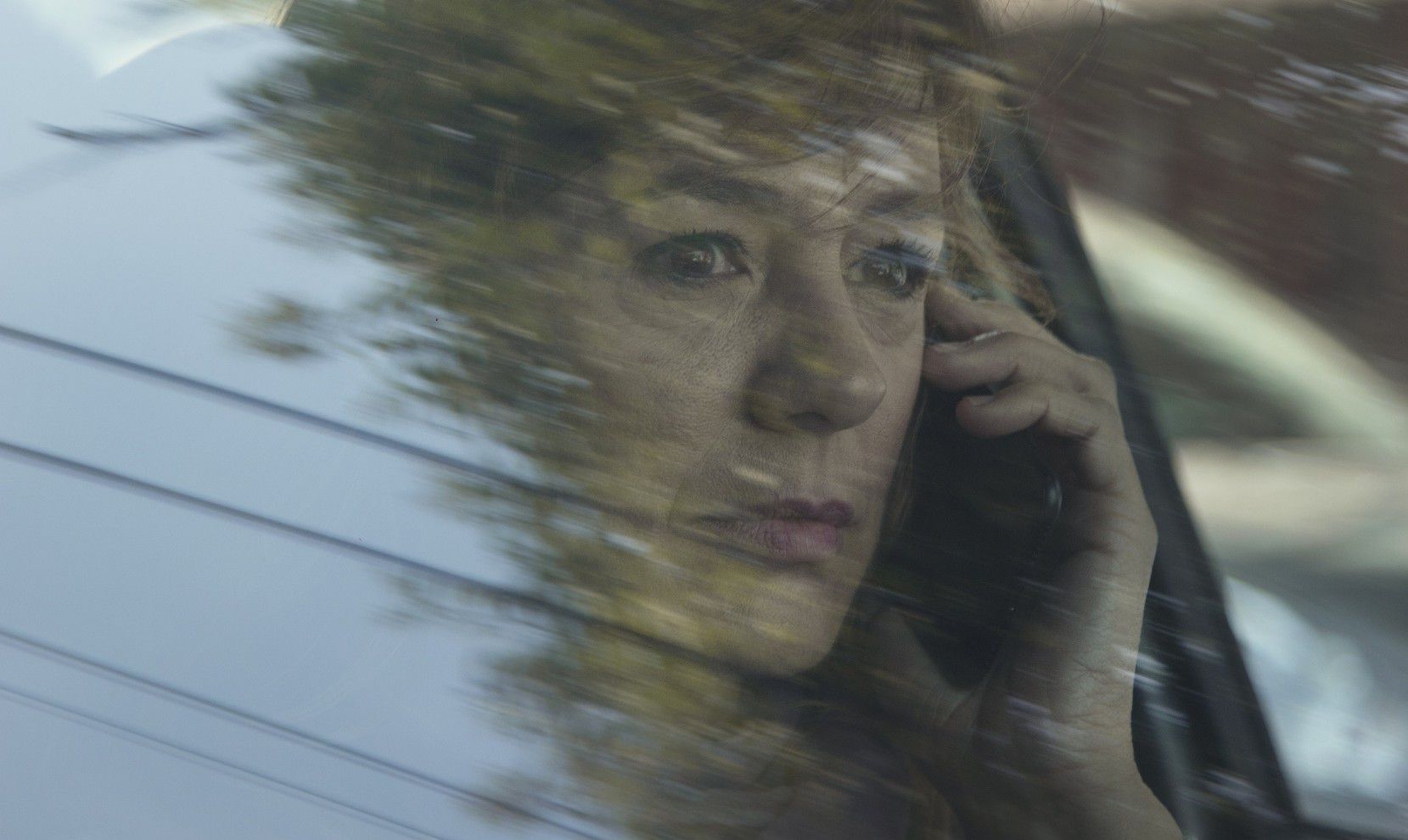
——テーマやストーリー、そして画作りにおいても人物の心理描写を深層まで追求しているのですね。本作に限らず、監督の作品では”車内”というシチュエーションが印象的に使われていますが、心理描写をするうえで車内という空間はどのような効果をもたらすのでしょうか。
ミシェル「そうなんですよね、毎回脚本を書き上げて『またこんなに車内シーンがある』と自分でも驚いてしまいます(笑)。私が暮らすメキシコシティでは多くの人が車を使って移動をしていること、それゆえ皆が沢山の時間を車で過ごしているからというのが1つの理由としてあります。また、車内というのは親密な空間ですよね。そして車に乗り込んでシーンが移行すると沈黙の時間が生まれます。私は映画における台詞の無いシーンが大好きなんです。素晴らしい役者は顔を映すだけでもいい表現になるので、そのような人たちと作っているときは台詞なんかいらない。本作でも車の中のシーンは大きな意味を持つものが多く、例えば母親アヴリルの移動シーンは、彼女がファンタジーを渇望し、こことは違う娘から離れた場所で新たな人生を始めたいといった心境が描かれています。思えば私の処女作でのキーとなるシーンも車内だったので、そこがルーツだったのだなと思います」
–I feel like you’re certainly a film maker who pursues the emotional truth of characters in your story visually and buy the way you inform the character. But one thing I’ve always thought interesting about your work is that many things take place in a car in your movies. What does that space mean do you?
“When I see the script, I get surprised myself there are so many scenes in a car (laughs). It has no meaning, but I guess living in a Mexico City 22 million people spend a lot of time in a car to go somewhere or commute. And in car is the intimate space, you know. At the same time, when the character is driving by himself, it’s a good opportunity to have a silent scene. I like the scene without any dialogue. Especially when you have a great actor with an interesting face. And this time of course there’s a meaning that we’re traveling with the character in this car. It’s important because it’s Avril traveling to find the thing she’s desperately looking for. Her fantasies. She wants to start her new life at some different place to get away from her daughter. So yeah, especially my first movie was happing in a car too. Which means without noticing I started this thing since the first point (laughs). ”
——なるほど。さて前作で主演を務めたティム・ロスが今回は製作総指揮として参加していますが、その経緯を訊かせてください。
ミシェル「彼とは映画を通した強固な友情で結びついています。二人とも映画を心底愛していて、いつも電話やSNSでアイデアを話し合っているので、今や彼なしのプロジェクト進行は考えられないのです。彼はLAにいて私はメキシコシティにいるのですが、本作に関しても脚本はもちろん編集にも何度も目を通してくれて、常に意見をくれました。当初はアメリカでの撮影も考えていて、その相談もしていましたね。ティム自身も監督なので、撮影やキャスティングについても理解があります。だから、彼に役者として参加してもらっての次回作についても考えていると同時に、彼の監督作品を私が製作としてサポートするということもやりたいと思っています。映画とは、私にとってのティムや他の友人のように、作品を同じ感覚で理解して楽しめるような仲間と一緒に作るべきだと思います」
–Can you talk little bit about how Tim Ross got involved in this project as a producer?
” I started our friendship and cinematic relationship with Tim at the same time because it’s impossible to separate. We love movies and we always talk to each other or send messages to each other saying “I have an idea for a movie” or “I heard about the story I just wanted to tell you”. It’s been like that a while so I think now it’s impossible for me to make a project without having him involved. The same way with Gabriel and Lorenzo, they’re really successful directors in Mexico and part of my production company. I always get them involved as well. Tim lives in Los Angels and I live in Mexico so very very close. And even when he’s away shooting a movie, he saw like ten different versions of editing, read the script a free times, and gave me his ideas. I was thinking about shooting the film in the Staes so I asked him for some advices and he’s also a director himself so he understands a lot of cameras and editing. And of course, we are looking for something for me as a directer and him as an actor again. But in the meantime he’s also a director so I want to help him a producer, too. So cinema, when you find someone you understand and enjoy the same way, you have to stick to it.”
——監督の作品は本作も含め、観了後に大きな印象を残す終わり方の構成が魅力の1つとしてありますが、”映画の終わり方”についても哲学や美学があるのでしょうか?
ミシェル「重要なのは、全ての作品をこう終わらせなければならない、という哲学を持たないという点です。作品ひとつひとつにおいて、どう終わるべきかということをそれぞれ見つけ、作品に自分の哲学を押し付けないということが何よりも大切なのです。脚本段階ではまだ終わりが見えないこともありますが、作っていくなかで作品の方から終わらせ方を教えてくれるのです。とはいえ、エンディングに関して私が持つ哲学というのももちろんあって、それは決して全てを観客に明らかにしないということ。全て解決して答えを用意してしまうような終わらせ方は、監督にとっても観ている側にとっても楽なのですが、そこで得た観客の満足は数時間くらいしか続かないと思います。時には作り手の意図とは違う方向に答えを求めるような、また時には混乱してしまうような解釈ができる形で終わらせることで、皆の心の中に残る作品になるし、見終わった後も考え続けられるような作品になります。我々が生きる人生も同じですよね。誰しも単一の視点を持って日々過ごしているわけではなく、昨日と今日とでは物の見方だって変わってくるものです。だから、人生の持つ構造や視点、答えが出ないということを映画で表現していきたいのです」
–Of course with somebody as like-minded as yourself about cinema, you probably get to talk about cinematic theory and also sought of philosophy. But I feel all of your films are constructed such a way that when the film ends, as a viewer, my mind completely goes blank in a good way. The way you end your films has that affect on me. And I was wondering whether you have a sought of aesthetic or a philosophy when it comes to how movies should end?
“Actually it’s very important. The most important thing is that to have no philosophy and not to try to make a film end a certain way. Every movie deserves a different ending. So I don’t want to decide the end of the film based on my philosophy. That’s important to begin with. And every movie has to find its own ending and when I’m writing I’m not sure what that’s gonna be. I have an idea but I change. Sometimes the movie and story itself tells me I have to change the idea although I have an idea. Having said that, I do have a something close to philosophy which is never solve everything for the audience. You have to make the story at certain point where audience can jump to their own conclusions. And if you leave the story open, you can keep working on the audience mind. They’ll keep thinking about the movie. Because if you solve everything, it’s very easy for directors to do and audience feel satisfied for a little while, maybe for a couple of hours. But there’s no mystery there and people will forget about the movie. Our lives are the same. You know, when you think of something about your life, you never have a single point of view. Your view you have today can be different from the one you have tomorrow. I want to reflect that directly on my films. I think that’s the best movies can do that. ”
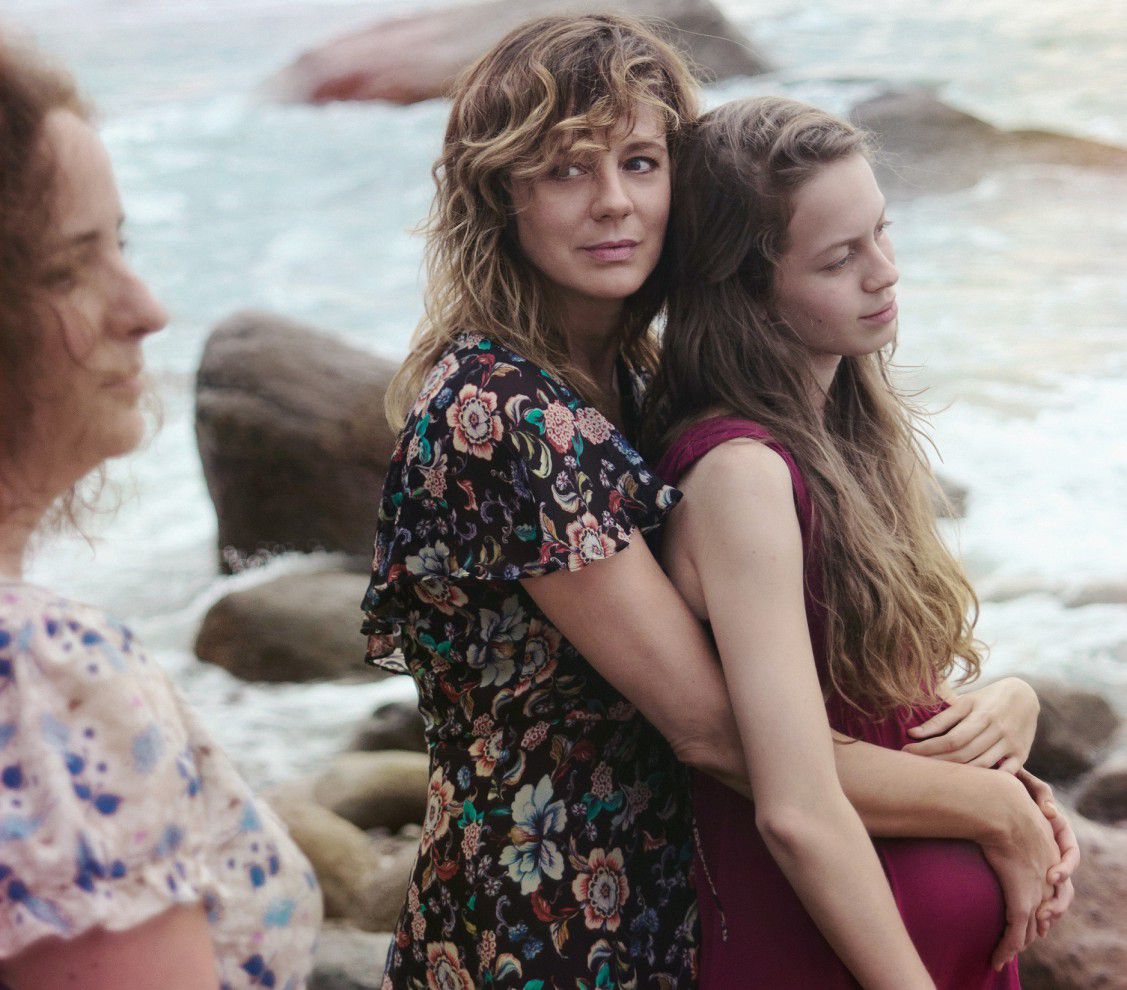
text Shiki Sugawara
『母という名の女』
6月16日(土)よりユーロスペースほか全国順次ロードショー
http://hahatoiuna.ayapro.ne.jp/
監督・脚本・製作・編集:ミシェル・フランコ (『父の秘密』(12)、『或る終焉』(15))撮影:イヴ・カープ(『ホーリー・モーターズ』(12)、『或る終焉』(15))
出演:エマ・スアレス(『ジュリエッタ』(16))、アナ・バレリア・ベセリル、エンリケ・アリソン、ホアナ・ラレキ、エルナン・メンドーサ
2017年/メキシコ/スペイン語/カラー/ビスタサイズ/103分/PG12/原題:Las Hijas de Abril/英題:April’s Daughter
©Lucía Films S. de R.L de C.V. 2017 後援:在日メキシコ大使館 配給:彩プロ
ミシェル・フランコ
1979年メキシコシティ生まれ。脚本家、監督、プロデューサーとして活躍。監督作として、第68回カンヌ国際映画祭コンペティション部門んで脚本賞を受賞した『或る終焉』(2015)、第65回カンヌ国際映画祭「ある視点」部門でグランプリを受賞した『父の秘密』(2012)がある。プロデュース作として、第65回ベルリン国際映画祭パノラマ部門で初監督作品賞を受賞したガブリエル・リプステイン監督『600マイルズ』(2015)、第72回ヴェネツィアヴェネツィア国際映画祭で金獅子賞を受賞したロレンソ・ビガス監督の『彼方から』(2015)などがある。自身の製作会社であるLucia Filmsで現在も複数の映画企画を進めている。

